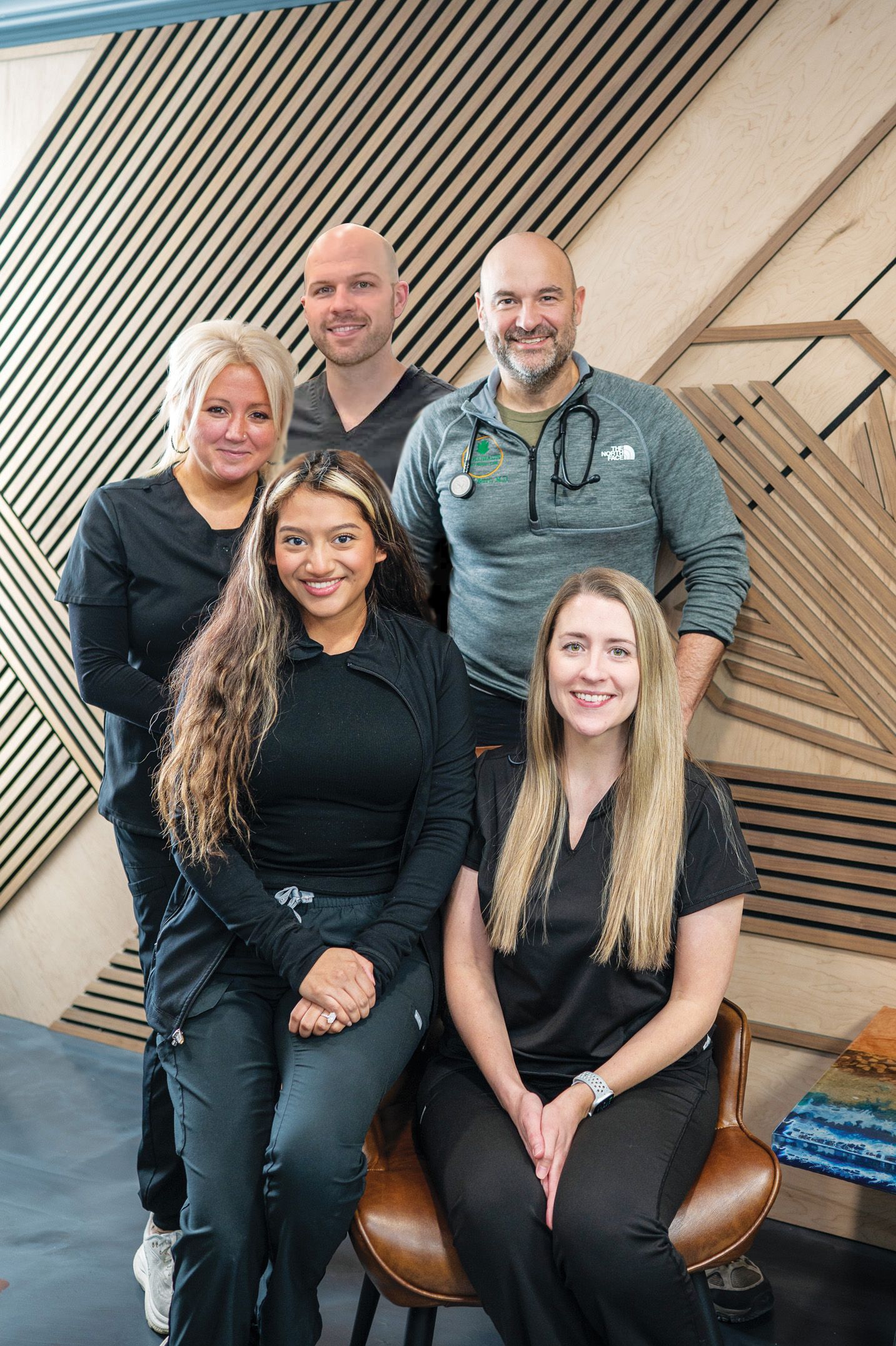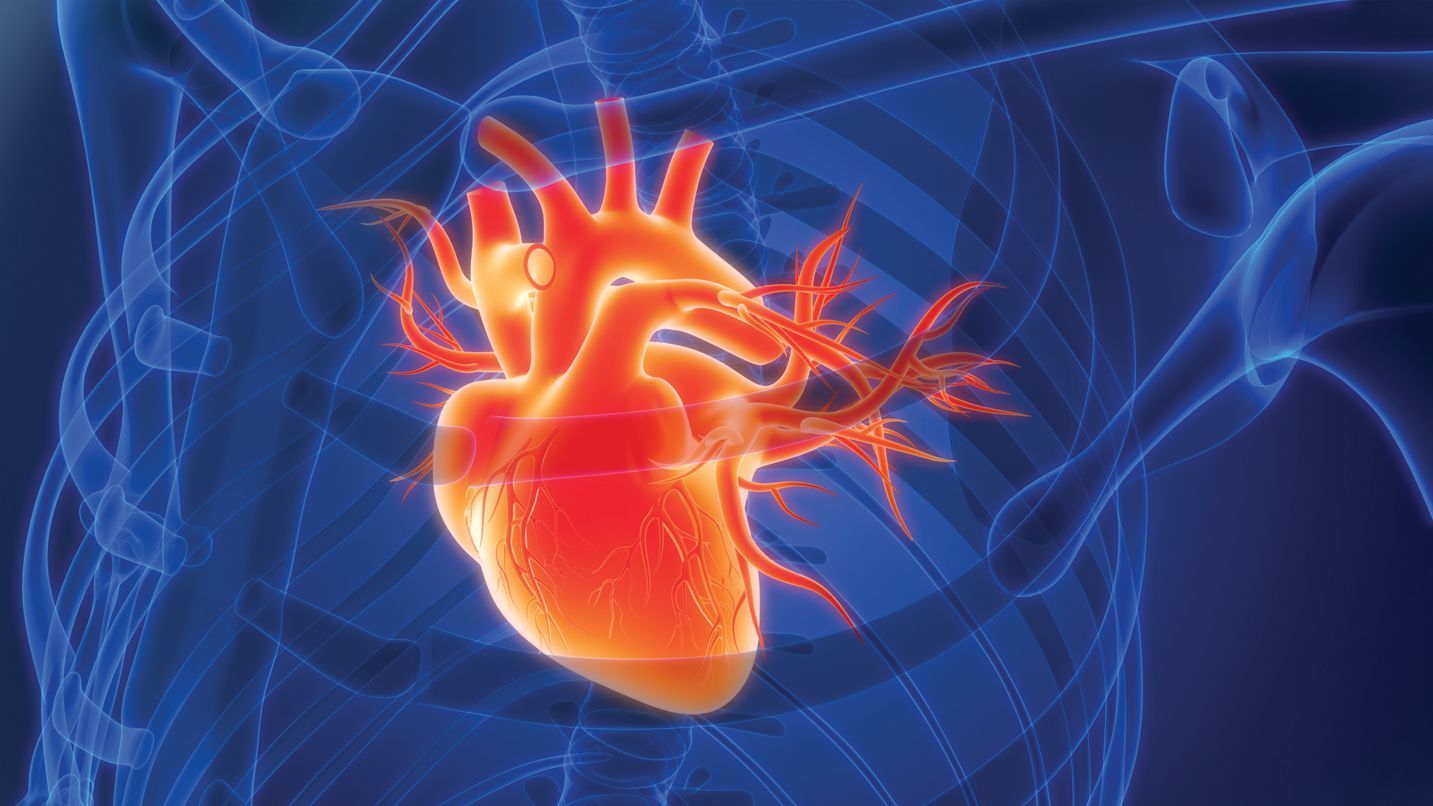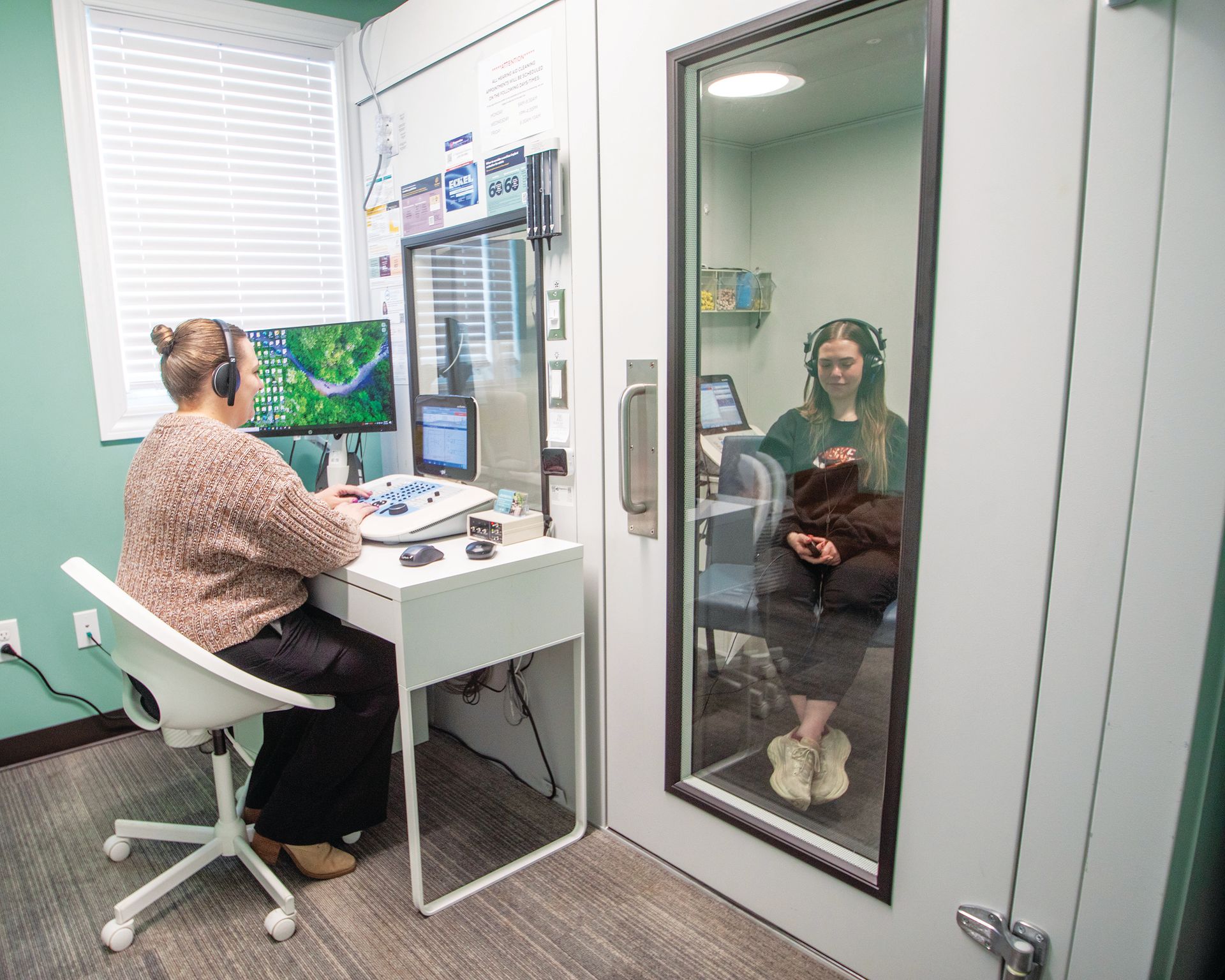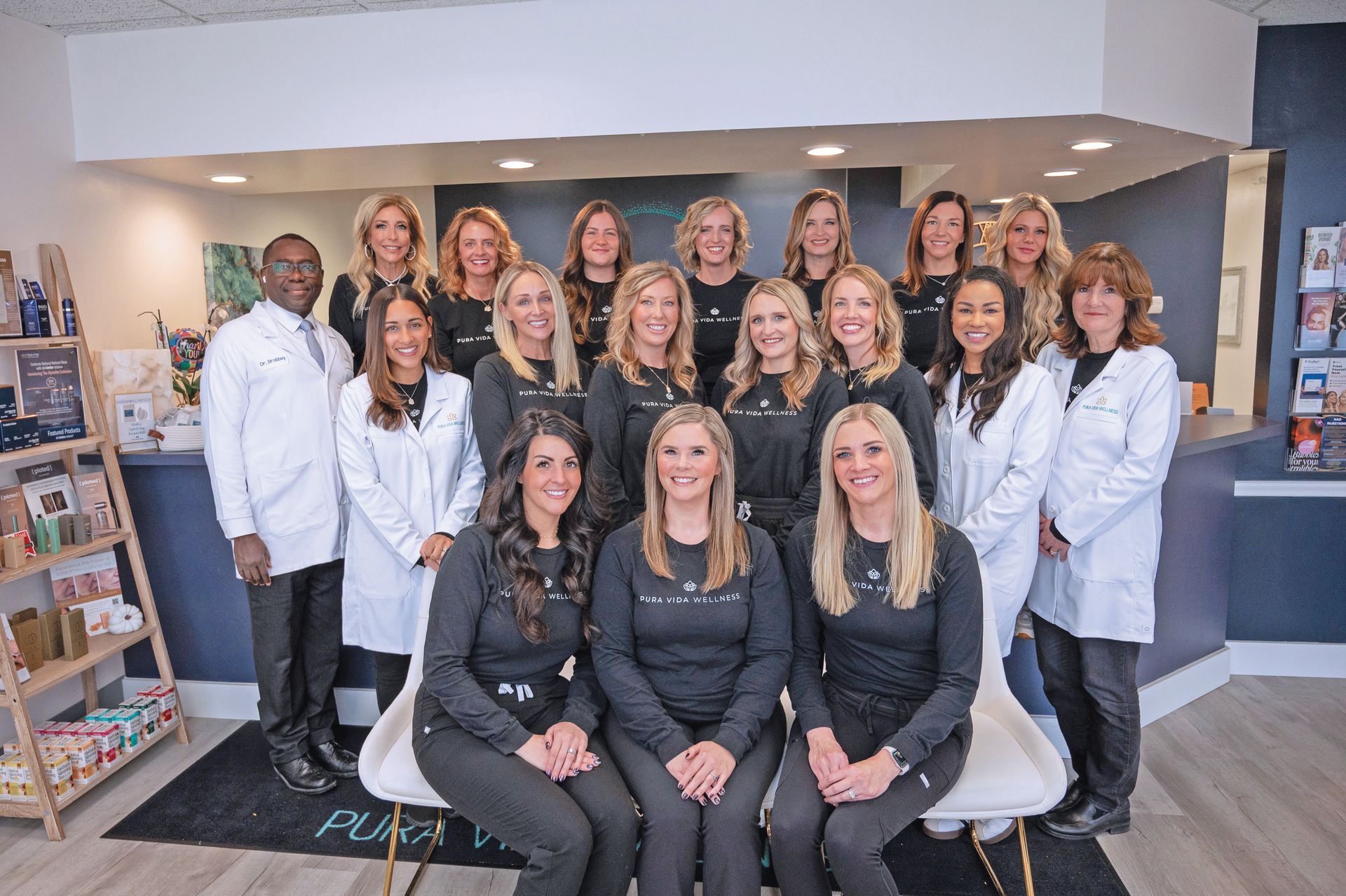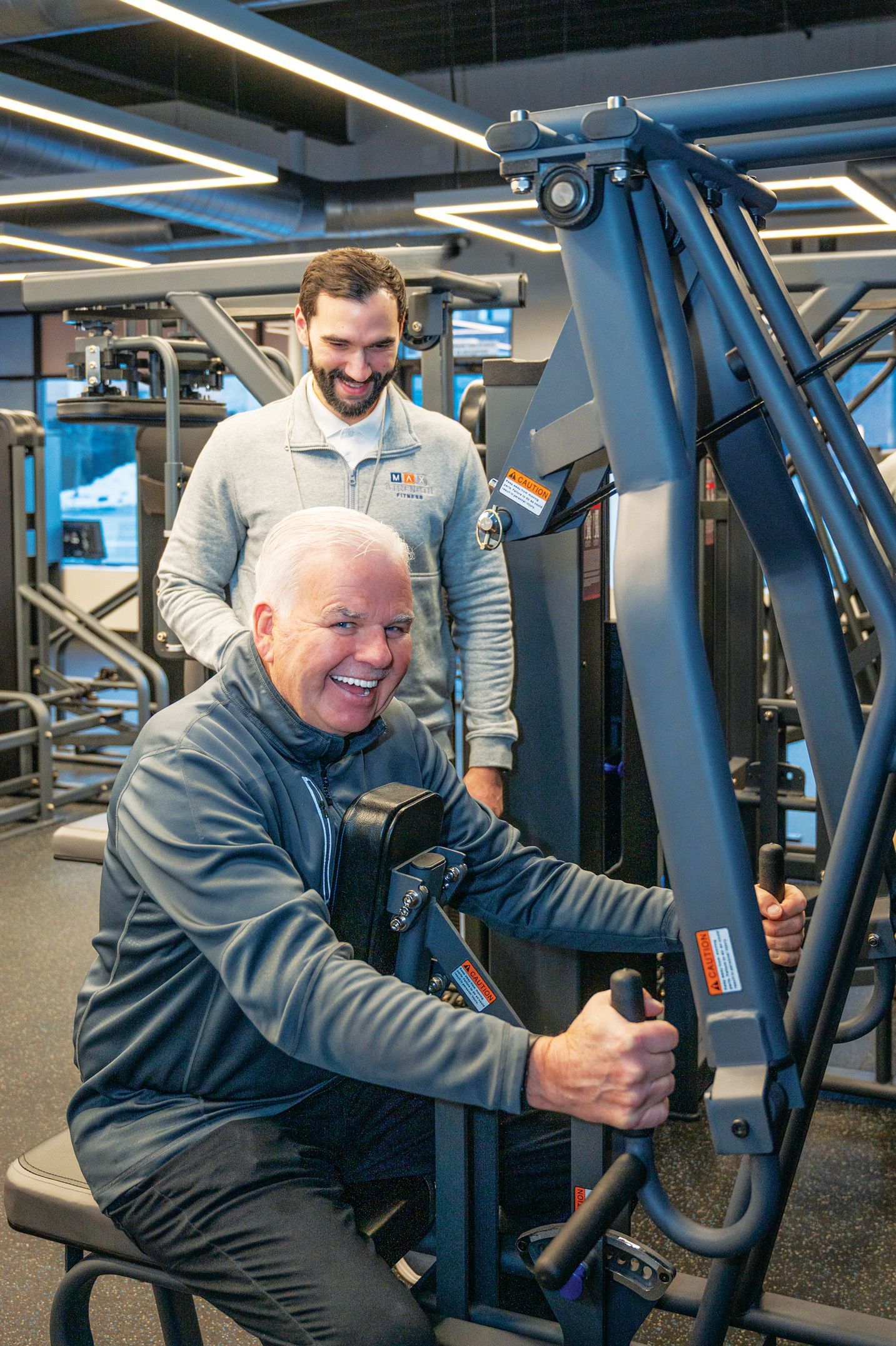UH Parma has heart
UH Harrington Heart & Vascular Institute at University Hospitals Parma Medical Center offers basic to complex treatment for heart and vascular issues, so your care can happen close to home.
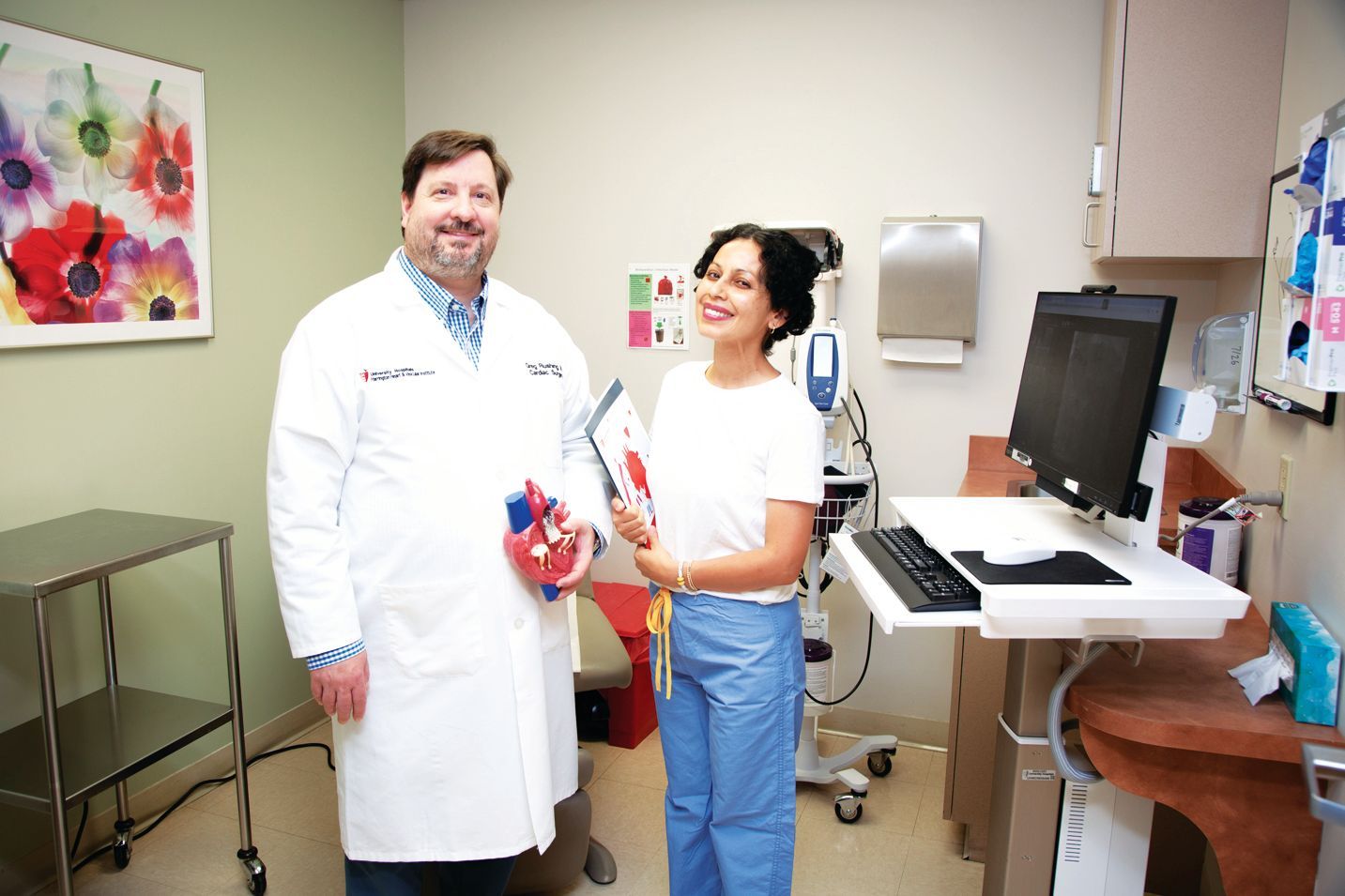
An expert in his field, Dr. Gregory Rushing (left, pictured with Lettie Moss, RN and cardiac nurse navigator) focuses on structural heart disease and cardiac arrhythmias. He is a highly skilled surgeon in transcatheter aortic valve replacement and in minimally invasive atrial fibrillation ablation to correct cardiac arrhythmias—achieving optimal outcomes without the need for open-heart surgery. (Photograph: Tony Palmieiri)
One of Dr. Gregory Rushing’s first requests when he joined the staff of University Hospitals Parma Medical Center in 2021 was for white boards in patient rooms so he could sit down with them and explain their cardiac procedure.
“I’ll draw a little cartoon of the heart and draw pictures of what the surgery will do,” says Dr. Rushing, a cardiothoracic surgeon who serves as Co-Director of the Valve and Structural Heart Disease Center at University Hospitals Harrington Heart & Vascular Institute and Director of Cardiac Surgery at University Hospitals Parma Medical Center. “Most people understand pictures better than they do words, so it is a way to put them at ease.”
After all, heart surgery can be daunting for many patients. As part of the cardiac staff, Lettie Moss, RN, a cardiovascular nurse navigator, guides patients through the entire surgery process from pre-op to post-op, further helping patients feel at ease.
“Patients are often fearful of having surgery, so I am here to reassure them they are going to be okay,” Lettie says, noting that she gives patients her cell phone number so they can contact her any time. “It’s often the little details, like giving the family a tour of the hospital the day before surgery to lessen their anxiety or answering questions about medication after the patient goes home.”
Since University Hospitals took over operation of Parma Hospital in 2021, the UH Harrington Heart & Vascular Institute at UH Parma Medical Center completes about150 cardiac surgeries every year. A core team of four highly skilled surgeons perform everything from a minimally invasive cardiac procedure to advanced open-heart surgery.
“Patients can remain in their community for specialized care rather than traveling to the downtown main campus for advanced procedures because we have comprehensive cardiac and vascular services right here in Parma,” Dr. Rushing says.
An expert in his field, Dr. Rushing focuses on structural heart disease and cardiac arrhythmias. He is a highly skilled surgeon in transcatheter aortic valve replacement and in minimally invasive atrial fibrillation ablation to correct cardiac arrhythmias—achieving optimal outcomes without the need for open-heart surgery.
“We have an AFib clinic in Parma where we see and treat patients using minimally invasive, robotic, and catheter approaches to restore sinus rhythm,” Dr. Rushing says. “Our goal is to reduce patients’ risk of heart failure and stroke.”
Atrial fibrillation is especially prevalent in seniors, as up to 40% of patients over the age of 70 have this arrhythmia, and it is the most common reason for stroke.
“Using a minimally invasive hybrid approach in collaboration with our electrophysiology colleagues, we are able to offer patients markedly higher success rates of sinus rhythm,” Dr. Rushing says.
University Hospitals Parma Medical Center is located at 7007 Powers Boulevard, in Parma. You can learn more at UHhospitals.org/ParmaHeart, or make an appointment by calling 440-743-4027.
Are You at Risk?
As part of its heart and vascular services and community outreach, UH Harrington Heart & Vascular Institute at University Hospitals Parma Medical Center offers a free Coronary Artery Calcium Score Test that can help predict your risk for heart attack. Performed during a 30-minute appointment, the CT scan measures the amount of calcium buildup in the coronary arteries. The presence of calcium in the arteries is a marker of coronary artery disease—the most common cause of heart attacks.
“People often look at coronary heart disease as something lurking in the shadows. You never know when something is going to happen. But there is a screening available that shows if you are at risk,” says Dr. Gregory Rushing.
Who Should Have a Calcium Score Test?
Men and women ages 45 or older with no history of coronary artery disease and with one or more risk factors, including:
- High blood cholesterol
- Low HDL cholesterol (“good” cholesterol)
- High blood pressure
- Cigarette smoking
- Type 2 diabetes
- Chronic inflammatory condition
- Early menopause
- Chronic kidney disease
- Family history of heart disease
Though this is a no-cost, a doctor’s order is required. Learn more at UHHospitals.org/calciumscore.
Recent Posts
RELATED ARTICLES

